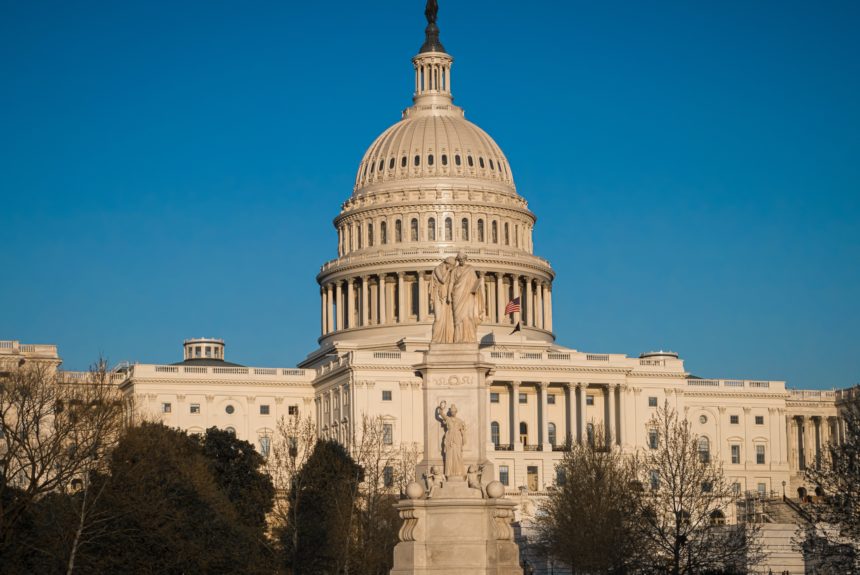The Biden administration’s abrupt decision to suspend new liquefied natural gas (LNG) export projects has sparked uncertainty in the energy sector and raised questions from America’s international trading partners. To address these concerns, the Senate Energy and Natural Resources Committee convened a hearing last week to delve into the reasons behind the administration’s decision and seek clarity on its implications.
>>>READ: Biden’s Dangerous Climate Extremism
The hearing, which was periodically interrupted by climate activists, featured Deputy Energy Secretary David Turk. Turk emphasized that the ban would only last as long as it took DOE to conduct a macroeconomic assessment of how LNG exports benefit the public good, a timeline that he said would take months, not years. It would not halt any and all exports of natural gas immediately. Instead, it would ban an estimated 11 billion cubic meters (BCM) of future projects that have been proposed, but not approved, according to the Deputy Secretary. Projects that have received permits or that have begun construction would not be impacted by this decision.
Still, the timing of the ban is curious given the state of domestic elections and global energy supply. With a contentious election incoming and Europe still reliant on Russian natural gas, critics have pointed out that halting American LNG exports is more of a political move than it is a policy-centric one. The Washington Post’s Editorial Board bluntly called it “an election-year sop to climate activists that will do much more to unsettle vital U.S. alliances than to save the planet.”
While the short-term impacts of the LNG ban will likely be minimal, critics point out that the larger issue at hand is how this move affects energy markets and relationships with America’s allies in the long term. James Watson of Eurogas, an industry trade group representing more than 100 European energy companies, also testified at the hearing and said, “The International Energy Agency is forecasting a supply gap within [the next] two to three years. Europe will face a future problem if there’s not a capacity there to supply our needs.” Should that happen, Europe will have to turn back to Russia, said Watson.
In addition to strengthening Russia’s energy sector, the long-term implications also include market uncertainty for domestic industry. If long-term projects are shuttered, businesses will be less likely to invest in LNG infrastructure, which is a move that is supported by many climate groups. America’s allies may also question if the U.S. can be a reliable supplier, which would send a signal to adversaries that the U.S. may not be interested in the continuation of traditional energy production.
>>>READ: Don’t Make LNG Exports the Next Keystone XL
The ban also carries with it negative impacts on the global climate. Studies have shown that American LNG has a carbon advantage and emits far fewer greenhouse gasses than Russian or Quatarian natural gas. With less American fuel on the market, allies will be forced to turn elsewhere and to dirtier providers, as Watson pointed out in his testimony.
Undersecretary Turk downplayed these concerns by saying that demand for LNG in the EU is declining, a point that contradicts DOE’s own data.
And while Undersecretary Turk correctly pointed out that halting LNG exports would not impact countries that have a free trade agreement (FTA) with the United States, he did not expound on the fact that most LNG exports go to non-FTA countries which are many of the same nations where future emissions growth is projected to be the highest.
Chairman Joe Manchin (D-WV) called attention to the fact that many developing nations do not have adequate access to fuel. What energy they do have is often generated by dirtier sources like dung or charcoal which has harmful impacts on air quality and public health. Ceding America’s share of the global energy market would keep air quality scores low and do little to reduce emissions. As Manchin said:
“The last account I knew of was called ‘global climate.’ It’s not called ‘U.S. climate.’ It’s not called any other climate in any other nation except it’s global. We’re all responsible. We’ve done a pretty good job and we can do a lot better. And the more that we’re producing, the better we’re helping the climate.”
DOE has not yet indicated how long the ban will be in place, but 26 Attorney Generals from Republican states have sued the administration over the decision. While the ban will not slow down immediate production, it could have serious implications for the future stability of America’s energy sector and long-term global climate progress.
The views and opinions expressed are those of the author’s and do not necessarily reflect the official policy or position of C3.
